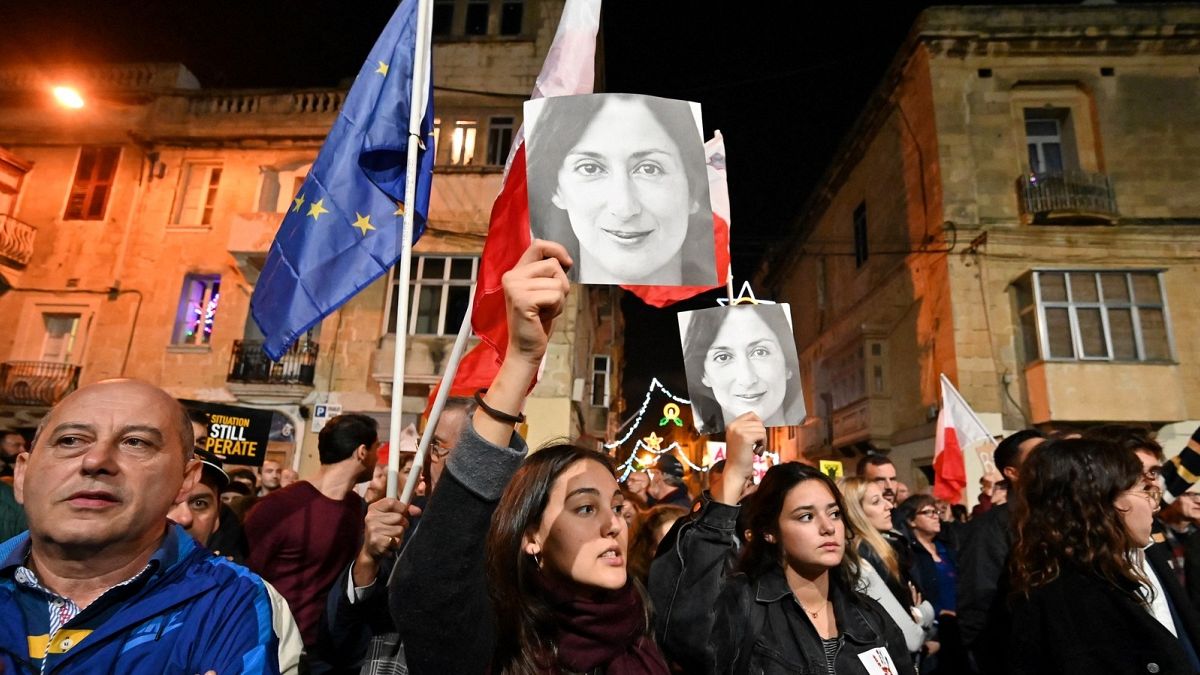The number of abusive lawsuits against journalists and human rights defenders increased to a record 161 in 2022, according to a new report published Wednesday by the Coalition Against SLAPPs in Europe (CASE).
Strategic lawsuits against public participation (SLAPPs) are abusive lawsuits against media companies, journalists, NGOs or human rights defenders aimed at intimidating and silencing them on issues of public interest.
Their use has been increasing steadily over the past decade in Europe and the rest of the world, undermining free speech and democracy.
Last year, an estimated 161 such lawsuits were filed, according to the report, busting the previous yearly record of 146 set in 2020.
CASE, in partnership with legal experts and the Daphne Caruana Galizia Foundation, analysed a total of 820 litigations, but said that the true number of SLAPPs is likely to be much higher.
In Croatia alone, for example, over 245 new lawsuits against journalists were launched in 2022, but CASE was unable to independently verify which were SLAPPs.
The most likely targets of a SLAPP are journalists, media outlets, editors, activists and NGOs, with legal action most commonly launched against individuals. Individual journalists were the targets of 30% of the cases studied. Other likely defendants include lawyers, academics, politicians, authors and publishers.
SLAPPs are commonly launched by those in positions of power such as businesses (39.9%), state-owned entities (26.8%) and politicians (25%), and mostly target actions or publications on corruption, government, business and environmental issues.
Defamation is the most common legal basis, accounting for 72% of the lawsuits studied in the report.
The SLAPPs analysed also included exorbitant demands in value of damages, with the highest totalling some €17.6 million. The median value of damages claimed was €15,150, and the average €360,659. In 8.3% of the cases in 2022, defendants faced criminal repercussions, such as incarceration.
According to CASE, 2022 saw a significant number of SLAPPs lodged in Malta, France, Croatia, Greece, the United Kingdom, Turkey, and Georgia.
Malta had the highest number of SLAPPs per capita, with 19.93 cases per 100,000 people, although the data was highly influenced by multiple cases brought by the Maltese government against the Maltese online investigative portal The Shift News.
The issue is of high importance in Malta, where journalist Daphne Caruana Galizia faced 43 civil and five criminal lawsuits at the time of her murder in 2017.
Daphne's Law
The European Commission is trying to restrict the use of these lawsuits and in April put forward proposals for an anti-SLAPP Directive, known as Daphne’s Law, in honour of Caruana Galizia.
It would enable judges to swiftly dismiss unfounded lawsuits against journalists and human rights defenders, and establish safeguards - such as compensation for damages and dissuasive penalties - for launching abusive lawsuits.
It would also ensure uniform legal protection across member states, where current laws on SLAPPs vary widely.
The Directive received the backing of the European Parliament's JURI Committee in June, and was approved in plenary in July.
But there are fears European member states, which form the Council of the EU, will attempt to water down the Directive's ambitions to safeguard journalists and media freedom during trilogue negotiations.
When member states agreed on their negotiating positions in June, European Commissioner for Justice Didier Reynders expressed his regret concerning "the weakening of the remedies against abusive court proceedings, in particular the deletion of the provision on compensation of damage and the weakening of the provision on award of costs."
Writing in Euronews in last month, Emma Bergmans of Free Press Unlimited and Corinne Vella of the Daphne Caruana Galizia Foundation stated that "ironically, the Council’s version of Daphne’s Law would not have protected Daphne herself from the SLAPPs she was facing."
One of the likely sticking points in upcoming negotiations includes the definition of ‘cross-border’ SLAPPs, where the complainant and the defendant reside in different member states. According to the CASE report, these account for just under one in ten SLAPPs.
